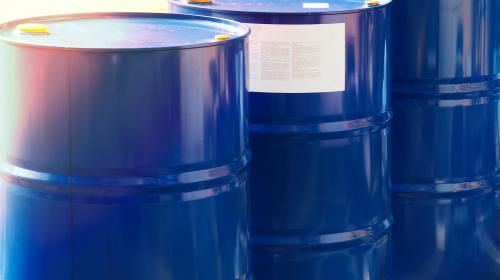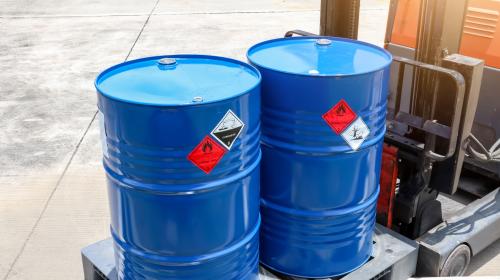Batteries, pesticides, lamps and devices containing mercury: for many businesses, these specific types of hazardous waste, classified by the Environmental Protection Agency (EPA) as “universal waste,” may be among the only hazardous wastes they generate. Federal universal waste regulations found in Title 40 of the Code of Federal Regulations (CFR) part 273 offer generators more lenient regulations than other types of hazardous waste. They may be stored for longer periods (generally one year) in larger quantities and may not require a manifest with shipping. But rather than simply following the minimum federal and state requirements, generators in Wisconsin can realize the benefits of a strong universal waste management program by following a few simple best practices and tips. Doing so may exempt some of your waste from counting toward your company’s generator status, build goodwill with stakeholders and improve your business reputation.
Batteries
Leaking batteries and improper storage can lead to expensive risks including short-circuiting, employee injuries, fires and chemical burns and potential management of a hazardous waste. Carefully following federal, state and local regulations can help you prevent disasters, while working with recycling and resource recovery experts to recycle many types of batteries can protect the environment and help you improve your generator status. Other best practices include:
- Properly store batteries in leak-proof, non-metal containers. Leaking batteries should be stored in their own, separate containers
- Keep different types of batteries stored separately.
- Use one of the following methods for battery storage:
- Place tape over battery terminals
- Package batteries so terminals do not come into contact
- Discharge batteries according to manufacturer’s instructions
- Place each battery in a separate plastic bag
- Intact, non-leaking, lead-acid (automotive) batteries should be placed on a pallet up to three layers high with cardboard in between the layers so the terminals do not touch. Shrink wrap the pallet.
- Label each container “Used Batteries,” “Waste Batteries” or “Universal Waste Batteries”. For lead-acid batteries, put a label on or above the pallet.
Pesticides
In Wisconsin, universal wastes include hazardous waste pesticides that have been a) recalled, cancelled or suspended or b) collected in waste pesticide collection programs. Pesticide residue in spray cans and any new pesticide that is purchased but not used should also be treated as universal waste. Generators should be sure to properly label, containerize and date pesticides with the date it is classified as waste and the words “Universal Waste - Pesticides” or “Waste Pesticides” with their original product labels. Documenting any employee training done at your facility will also ensure you remain in compliance. Rather than simply disposing of these chemicals, consult resource recovery experts to determine whether chemicals at your business may be recycled or if there is a secondary market for your universal waste. At Enviro-Safe Resource Recovery, we help our clients find the best solution for their specific universal waste products, including chemicals commonly found in pesticides like methylene chloride. Consulting experts in waste minimization and recycling may also help your company exempt some chemicals and keep you from being bumped into a larger generator category.
Lamps and Lights
Lightbulbs and lamps regulated by federal and state laws include CFL, HID, neon, mercury vapor, sodium and fluorescent lights. Best practices for these materials include:
- Place lights in tall cardboard boxes provided by the lamp retailer or your recycler. Small CFLs may be stored in a small, non-metal bucket that includes a lid.
- Never store fluorescent lights in metal containers because it can absorb mercury, classifying it as hazardous waste.
- Properly date and label all containers as “Waste Lamps,” “Used Lamps,” or “Universal Waste Lamps.”
- If a lamp is broken, train employees in safety protocols and manage accordingly.
- Place any broken lamps in a leak-proof, non-metal container and send it for recycling with your next shipment of intact lamps. At Enviro-Safe, we offer proper transport and recycling options for lamps and light bulbs.



